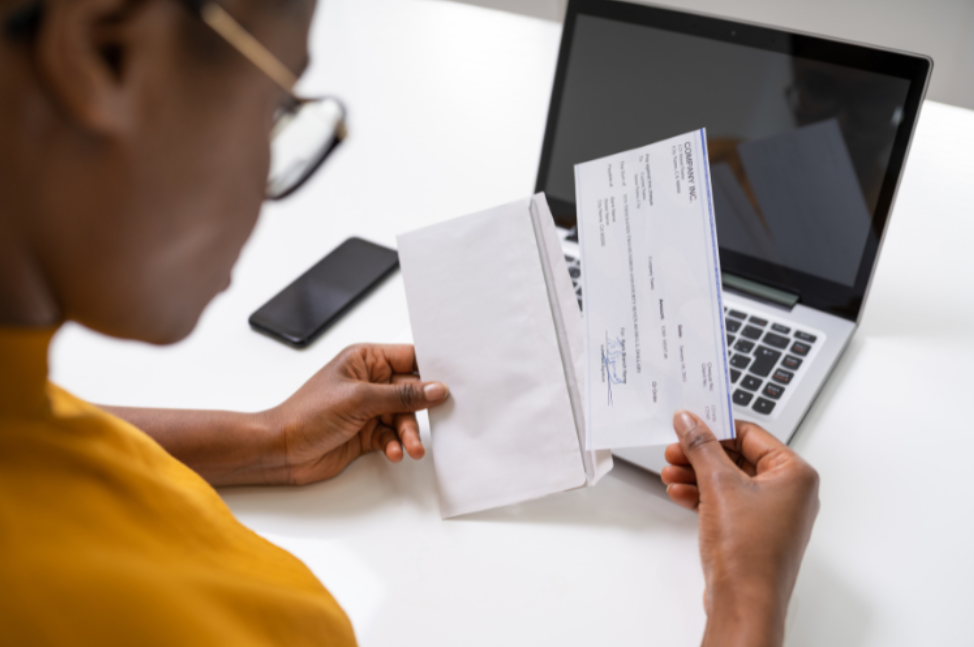
Getting out of Debt When Living Paycheck to Paycheck
Are you sick and weary of living paycheck to paycheck while putting all your hard-earned money towards debt?
You might feel sick to your stomach if you’ve taken the time to sit down and figure out the amount of money you are paying into debt. You see your minimum payments are increasing and most payments go to interest. You still have to make ends meet each month. You end up having very little money left over, if any and if there was a financial catastrophe, you would have to take out a loan. Does this sound like your situation?
The best part is that you do have the potential to break free from your paycheck-to-paycheck cycle. It ultimately has to do with you spending less than you earn.
It’s time to change if you’re tired of working 40 hours per week just to pay off credit card debt, payday loans, student loans, or even CRA. If you struggle to make ends meet, using the strategies in this article will enable you to pay off your debt and leave you money left over from your pay.
Assess your spending habits and create a budget.

You must take two steps in order to handle your money more effectively. First, list all of your obligatory monthly expenses. Consider your monthly expenses including rent, utilities, phone, groceries, auto payments, and insurance. The second step is to identify where the rest of your earnings are being spent.
You can easily track your spending with the use of free online money management tools and applications to gain a better idea of where your money is going. You securely link the credit card and bank account transaction history to make it function. Following that, each transaction is categorized. Once you’ve categorized your purchases into groups, you can work your way backwards from there to see what you can remove from your spending pattern.
Reduce your spending
After tracking your spending, seek ways to reduce those costs. Can you find a home insurance policy for less money? Great. Why not cancel your gym membership if you haven’t been there for a while?
Your everyday routine will present the most difficult change. For instance, you may easily save $75 a week by taking your own coffee and lunch to work. Give yourself a weekly cash spending limit after meeting your essential necessities. This allowance now serves as your spending limit for any extras. It won’t be simple, as we said, but the effort will be worthwhile in the end.
Boost your income
Look for ways to increase the amount of money coming in as well as reducing the amount of money going out. Earning more money is a certain way to make it simpler to balance your budget, whether that means creating a side job, asking for a raise, or getting some over-time when possible from your work place.
Increasing payments or decreasing interest
So you’ve reduced your everyday spending and reduced your monthly bills to give your budget some breathing room. Do you have credit card debt or other consumer debt? Ask your bank to cut your interest rates by giving them a call. If they are unable to assist you, you can reduce your payment amounts by consolidating your debt or find debt solutions to get rid of your debt for good.
Automating payments to your investment or emergency savings accounts is also a good idea at this time. These should be set up to automatically deduct funds from your bank account on payday, preventing you from ever having the opportunity to spend that money.
Establish an emergency fund.
Living paycheck to paycheck might cause unanticipated financial stress, which can disrupt your entire month. It’s wise to have at least three months’ worth of expenses saved. This contains the necessities for survival. This would cover your minimal debt payments as well as rent, electricity, food, and gasoline. There is no need to include any extraneous subscriptions or costs, like cable, Netflix, or dining out.
You can use the money in your savings to prevent you from withdrawing from your checking account in the event of an unanticipated financial emergency or job loss. We all know that unforeseen events can happen in life, so restore your funds as quickly as you can to its usual level!
Start repaying your debt.
It’s time to create a strategy to pay off all of your debt after adding it all up. The debt snowball approach is ideal for those who require drive or a rapid win. Pay off debt using this strategy, smallest balance to greatest balance. Your motivation will increase if you pay off your loans fast.
For those who wish to concentrate on debt solutions that eliminate your debt all together, speak with a debt consultant to get you on track of elimination and move forward with peace of mind.

Conclusion
There is no reason to live from paycheck to paycheck. You’ll be able to pay off debt if you’re committed and willing to put in the effort!
Need more assistance with setting up a budget and paying off debt with a debt consolidation, consumer proposal, or bankruptcy? Please reach out to us at EmpireOne Credit, let’s help you break the cycle of debt. Debt free… Feels good!





